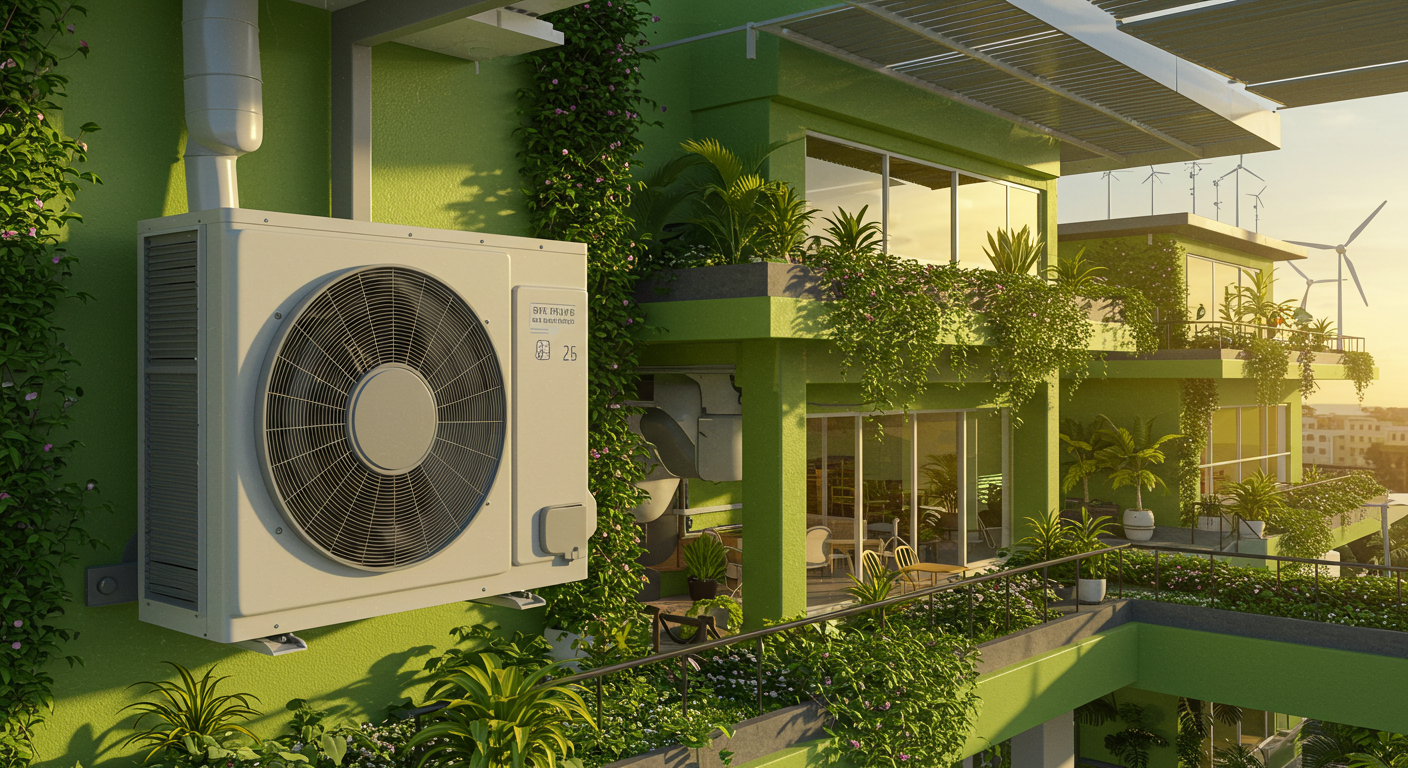
Exploring Carbon-Neutral HVAC Options for a Sustainable Future
As we move further into 2025, the push towards carbon neutrality in our homes and businesses has never been more urgent. The HVAC industry, responsible for a significant portion of energy consumption, is at the forefront of this transformation. In this post, we’ll explore the latest advancements in carbon-neutral HVAC systems and how they are paving the way for a sustainable future.
The Rise of Decarbonization HVAC Technology
Decarbonization is more than just a buzzword—it’s a necessity. Heat pumps, both air-source and ground-source, are central to this strategy, offering efficient heating and cooling through electricity. These systems are increasingly efficient, serving as the primary technology for building decarbonization. Governments and utilities are accelerating the electrification of heating, incentivizing the adoption of electric heat pumps and water heaters to replace fossil fuel-dependent equipment. This shift not only reduces carbon emissions but also aligns with the new regulations banning high-GWP refrigerants.
Smart HVAC Systems: A Leap Towards Energy Efficiency
The integration of smart technology into HVAC systems is a game-changer. Utilizing AI, sensors, and smart thermostats, these systems adapt to occupant behavior, significantly reducing energy waste. This innovation can lead to up to 30% reductions in heating and cooling costs. As we embrace these energy-efficient HVAC systems, we’re not only cutting costs but also making strides towards a greener planet. Additionally, systems like Daikin’s advanced heat pumps, using proprietary low-GWP refrigerants, are setting new standards in efficiency and sustainability.
Integrating Renewable Energy for Net Zero HVAC Systems
Renewable energy sources like solar and wind are increasingly being integrated with HVAC systems, offering a pathway to net-zero emissions. This integration is crucial for both new constructions and retrofit projects aiming for deep decarbonization and resilience. Alongside advances in thermal insulation and passive cooling, these systems are reducing HVAC-related carbon footprints, supported by regulatory standards and incentive programs.
- Heat pumps are central to carbon-neutral strategies, offering efficient heating and cooling.
- Electrification of heating is being accelerated by incentives for adopting electric systems.
- Smart HVAC systems can reduce energy consumption by up to 30%.
- Integration with renewable energy sources supports the move towards net-zero HVAC systems.
Conclusion
In conclusion, the journey towards carbon neutrality in HVAC systems is well underway. By embracing technologies like heat pumps, smart systems, and renewable energy integration, we’re not just reducing our carbon footprint—we’re building a sustainable future. Let’s continue to innovate and adapt, ensuring our homes and businesses are both efficient and environmentally friendly.
Ready to make the switch to a carbon-neutral HVAC system? Start exploring your options today and take a step towards a greener tomorrow!
FAQs on Carbon-Neutral HVAC Systems
What are the benefits of carbon-neutral HVAC systems?
Carbon-neutral HVAC systems significantly reduce energy consumption and carbon emissions, leading to lower energy bills and a smaller environmental footprint.
How do heat pumps contribute to decarbonization?
Heat pumps efficiently provide both heating and cooling through electricity, replacing the need for fossil fuel-based systems and supporting decarbonization efforts.
What role do smart HVAC systems play in energy efficiency?
Smart HVAC systems use AI and sensors to adapt to occupant behavior, minimizing energy waste and potentially reducing heating and cooling costs by up to 30%.
How is renewable energy integrated into HVAC systems?
Renewable energy sources like solar and wind can be integrated with HVAC systems to achieve net-zero emissions, enhancing sustainability and resilience.
What are the new regulations regarding refrigerants in HVAC systems?
Starting January 1, 2025, the U.S. EPA bans high-GWP refrigerants in new systems, promoting the shift to sustainable alternatives like HFOs and natural refrigerants.

